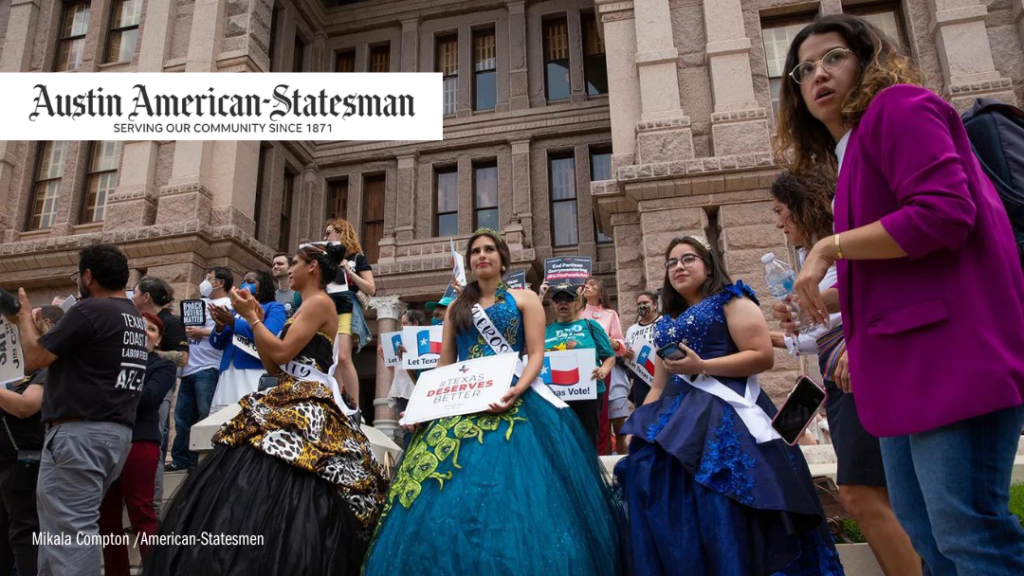
Featured In: Austin American Statesmen
Following excerpts from: Texas Latinos as large a voting bloc as ever. What this means for Democrats and Republicans
(Emiliano Tahui Gómez | Austin American-Statesman)
“The 2024 election will be the first since the U.S. Census Bureau announced last year that Latinos are the plurality of the population in Texas. The most recent census data indicated that 40.2% of the state’s residents identify as Latino, compared with 39.8% who identify as non-Hispanic whites.
This doesn’t mean Latinos will be the largest voting bloc in the coming election — in 2022, the 6.5 million eligible Latinos made up just under a third of the potential Texan electorate and, per a CBS Exit poll, only about a fifth of Lone Star State voters — but it does mean that the relatively young demographic’s electoral power has continued to grow. The Pew Research Center estimates that Latinos will compose 14.7% of all eligible voters in the U.S. in 2024, up from 13.6% in 2020.”
…
“Data published by the Council of the Americas on Texas’ 2022 elections showed that Latinos ages 18-29 most heavily backed Democrats. More than 3 in 4 of these voters supported Democratic candidate Beto O’Rourke over Abbott. In comparison, only 50% of Texas Latinos ages 30-44 backed O’Rourke.
Jolt Action, a progressive-minded civic engagement group, will focus on registration and get-out-the-vote efforts among young Latinos in San Antonio, Houston and Dallas. A good portion of this is done through affiliated university and high school student clubs.
Executive Director Diana Maldonado said the organization’s focus is necessary because of how young Latinos skew in Texas. Just less than a third of Texas Latinos are under the age of 18, meaning there’s potential for what Maldonado calls a “tsunami” of new eligible voters.
Jolt said it registered more than 24,000 voters in the two years before the 2022 election and almost 13,000 last year. Its goal for the 2024 election cycle, including 2023, is to register 30,000 voters.
Maldonado said that the biggest obstacle Jolt confronts is convincing potential young voters that registering and showing up to vote is worthwhile in a state with a history of single-party rule. It causes voter fatigue, she said. A more competitive political reality has been theorized, but young Latinos have yet to see it.
“Doing nothing will get you more of nothing,” Maldonado said. “But doing something — at least there’s an opportunity, and hope.”
The pitch, she said, is to get young voters excited about a more “representational” slate of candidates whose views on LGBTQ+ rights, reproductive health and “respect” for immigrants align more with the views of this group of voters. “